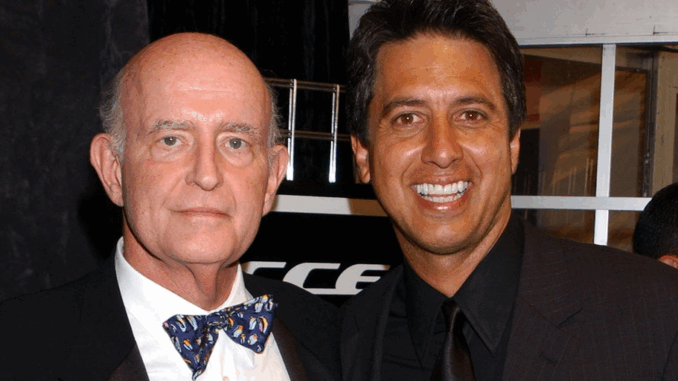
Beyond the Laughs
Everybody Loves Raymond wasn’t just about jokes and family squabbles—it showcased character growth, evolving relationships, and the nuances of family life. From Ray Barone’s sarcastic humor to Debra’s resilience, the series allowed characters to mature, confront challenges, and reveal layers that kept audiences engaged for nine seasons.
This article explores how the beloved characters evolved over time, both on-screen and in the hearts of viewers.
1. Ray Barone: From Lazy Dad to Family Man
-
Early Seasons: sarcastic, somewhat irresponsible, often clueless about family duties
-
Later Seasons: learns responsibility, improves relationship with children and Debra
-
Humor evolves from slapstick to clever observational jokes
-
Shows real growth while keeping his signature charm
2. Debra Barone: From Stressed Wife to Strong Matriarch
-
Initially overwhelmed by Ray’s antics and household stress
-
Develops patience, assertiveness, and leadership within the family
-
Navigates parenting challenges and career issues
-
Character arc reflects modern women balancing home and personal identity
3. Robert Barone: From Jealous Brother to Supportive Sibling
-
Starts as insecure, jealous of Ray’s success
-
Evolves into more confident, self-aware adult
-
Finds love and personal fulfillment with Amy MacDougall
-
Comedic timing shifts from envy-driven humor to heartfelt and situational comedy
4. Marie Barone: From Controlling Mother to Loving Matriarch
-
Dominates family dynamics with overbearing personality
-
Gradually softens, showing emotional depth and genuine care
-
Humor stems from meddling and witty one-liners
-
Evolution shows balance between comedic foil and relatable mother figure
5. Frank Barone: From Gruff Dad to Lovable Elder
-
Gruff, sarcastic, and often crude in early seasons
-
Becomes warmer, more involved in family life
-
Humor remains sharp, but emotional depth increases
-
Represents generational perspective with authenticity
6. Amy MacDougall-Barone: From Newcomer to Integral Family Member
-
Introduced as Robert’s girlfriend and later wife
-
Develops confidence, independence, and sense of belonging
-
Provides balance to Robert’s insecurities and family tensions
-
Growth mirrors audience investment in secondary characters
7. Ally Barone: Growing Up Onscreen
-
Ray and Debra’s daughter introduces new generational dynamics
-
Character growth includes learning responsibility, humor, and social skills
-
Provides opportunities for parent-child storylines reflecting real life
8. Geoffrey Barone: Navigating Childhood and Humor
-
Introduced as a younger son, showcasing sibling dynamics
-
Humor often derived from interactions with older siblings and parents
-
Growth includes developing personality and independence
9. Michael Barone: From Mischief to Maturity
-
Youngest son, often the catalyst for family comedy
-
Over time, shows emotional intelligence and awareness
-
Adds depth to parenting storylines for Ray and Debra
10. Evolution of Humor Across Characters
-
Early Seasons: situational and slapstick comedy
-
Mid to Late Seasons: blend of witty dialogue, family observations, and emotional humor
-
Characters’ comedic styles matured alongside their personal growth
11. Family Dynamics Over Time
-
Early: Ray vs. Debra conflicts, sibling rivalry, parental meddling
-
Later: Mutual respect, teamwork, emotional bonding
-
Storylines reflect realistic family growth and conflict resolution
12. Character Complexity
-
Characters evolved from comedic archetypes to multidimensional individuals
-
Audience sees flaws, strengths, vulnerabilities, and triumphs
-
Contributed to long-lasting emotional investment
13. Relationships and Growth
-
Ray and Debra: from frustrated couple to strong partnership
-
Robert and Amy: from awkward courtship to supportive marriage
-
Sibling relationships mature from rivalry to camaraderie
14. Generational Differences and Evolution
-
Marie and Frank’s traditional views contrast with Ray and Debra’s modern approach
-
Children’s perspectives introduce contemporary family challenges
-
Show balances generational humor with relatability
15. Legacy of Character Evolution
-
Characters’ growth contributed to show’s enduring popularity
-
Balanced comedy with heartfelt lessons
-
Allowed viewers to relate, laugh, and reflect on family life
Conclusion
The evolution of the Everybody Loves Raymond characters demonstrates how sitcoms can offer more than humor—they reflect human growth, relationships, and the passage of time. From Ray’s transformation as a father and husband to Debra’s journey toward empowerment, every character evolved naturally. This thoughtful development, combined with sharp comedy and relatable family dynamics, ensured the series remained a classic for generations.
FAQs
1. How did Ray Barone’s character evolve over the series?
He matured from a sarcastic, somewhat irresponsible dad to a loving, attentive family man.
2. Did Debra Barone’s role change throughout the series?
Yes, she developed patience, assertiveness, and became a strong matriarch managing family and personal growth.
3. How did Robert Barone grow as a character?
He moved from jealousy and insecurity to confidence, emotional maturity, and a fulfilling relationship with Amy.
4. Were the children’s characters developed over time?
Yes, Ally, Geoffrey, and Michael evolved from comedic side roles to multidimensional characters reflecting growth and maturity.
5. How did humor evolve with the characters?
It shifted from slapstick and situational comedy to witty, observational, and emotionally grounded humor.
